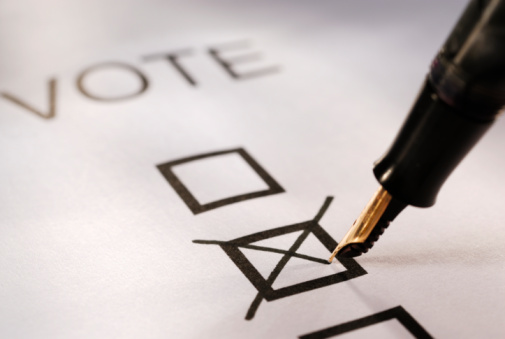There was some irony to be found in the latest rejection of electoral reform, this time courtesy of the voters in Prince Edward Island.

While the overall vote was slightly in favour of the status quo, the pro-reform forces managed to prevail via the very system they were trying to overthrow: the “yes” vote won in more ridings despite losing the popular vote.
A moral victory, perhaps, but ultimately a moot point.
While the electoral reform enthusiasts will no doubt press on after yet another defeat, it’s starting to feel as though the rest of the country has moved on. The reason why a majority of Canadians haven’t been swayed may well be that the arguments being presented in favour of change aren’t that compelling. How many more setbacks will it take to finally demonstrate that Canadians really aren’t into the idea of changing the way we elect governments?
P.E.I.’s “no” vote comes on the heels of similar results in B.C. and Ontario. Prime Minister Trudeau did campaign on a promise to change Canada’s electoral system, but it became apparent rather quickly that his government had no intention of following through. Proponents of reform might point to that promise as a factor in Trudeau’s victory and therefore proof of popular support. However, the counter to that would be that Trudeau doesn’t appear to have suffered any political consequences as a result of breaking that promise.
- ‘Alarming trend’ of more international students claiming asylum: minister
- TD Bank moves to seize home of Russian-Canadian jailed for smuggling tech to Kremlin
- Why B.C. election could serve as a ‘trial run’ for next federal campaign
- After controversial directive, Quebec now says anglophones have right to English health services
None of this is to say that our first-past-the-post (FPTP) system is perfect or that there aren’t legitimate points to be made in support of alternative systems. By and large, though, Canada has been well-served by FPTP and it’s not clear that we’d be better off under a different system.
It’s also ironic that the actual election in P.E.I. produced more or less the result that a proportional system would have produced. The PCs got just over a third of the vote and just over 36 per cent of the vote and just over 40 per cent of the seats. The April 16 Alberta election saw the UCP win both a majority of votes and majority of seats, while the ousted NDP will hold about 27 per cent of the seats with their 32 per cent vote share.
It is true, though, that our system produces majority governments for parties that do not garner a majority of votes. The very same Liberal government that abandoned the promise of reform is an example of that. But at the same time, we had the stability of knowing the Liberals would have a term to govern and that we would have the opportunity after four years to hold them to account.

Get daily National news
WATCH: Global News coverage of Prime Minister Justin Trudeau and electoral reform
That accountability exists at the local level as well, with each general election representing a collection of separate elections occurring at the riding level. Canadians have a direct say in who their local representative is and whether they wish to elect a different representative. It should, therefore, be no surprise that Canadians are leery about watering that down or losing it altogether.
Beyond the supposed fairness of proportional representation or other alternative voting systems, it’s not clear that the countries where those systems exist are any better off. Whether it be civic engagement, quality of governance, regional strife, or any other issue we’re ostensibly trying to address, Canada arguably stacks up quite well. Whatever problems might exist here on those fronts, they are not a byproduct of our electoral system. Our democracy might be different, but it’s certainly not worse.
As former British Prime Minister David Cameron has noted, beyond the simplicity, effectiveness and efficiency of FPTP, there’s a powerful historical argument in favour of it. Britain’s democracy — and Canada’s, for that matter — has a long and successful track record. We should be very careful about throwing the proverbial baby out with the bathwater.
Rob Breakenridge is host of “Afternoons with Rob Breakenridge” on Global News Radio 770 Calgary and a commentator for Global News.

















Comments